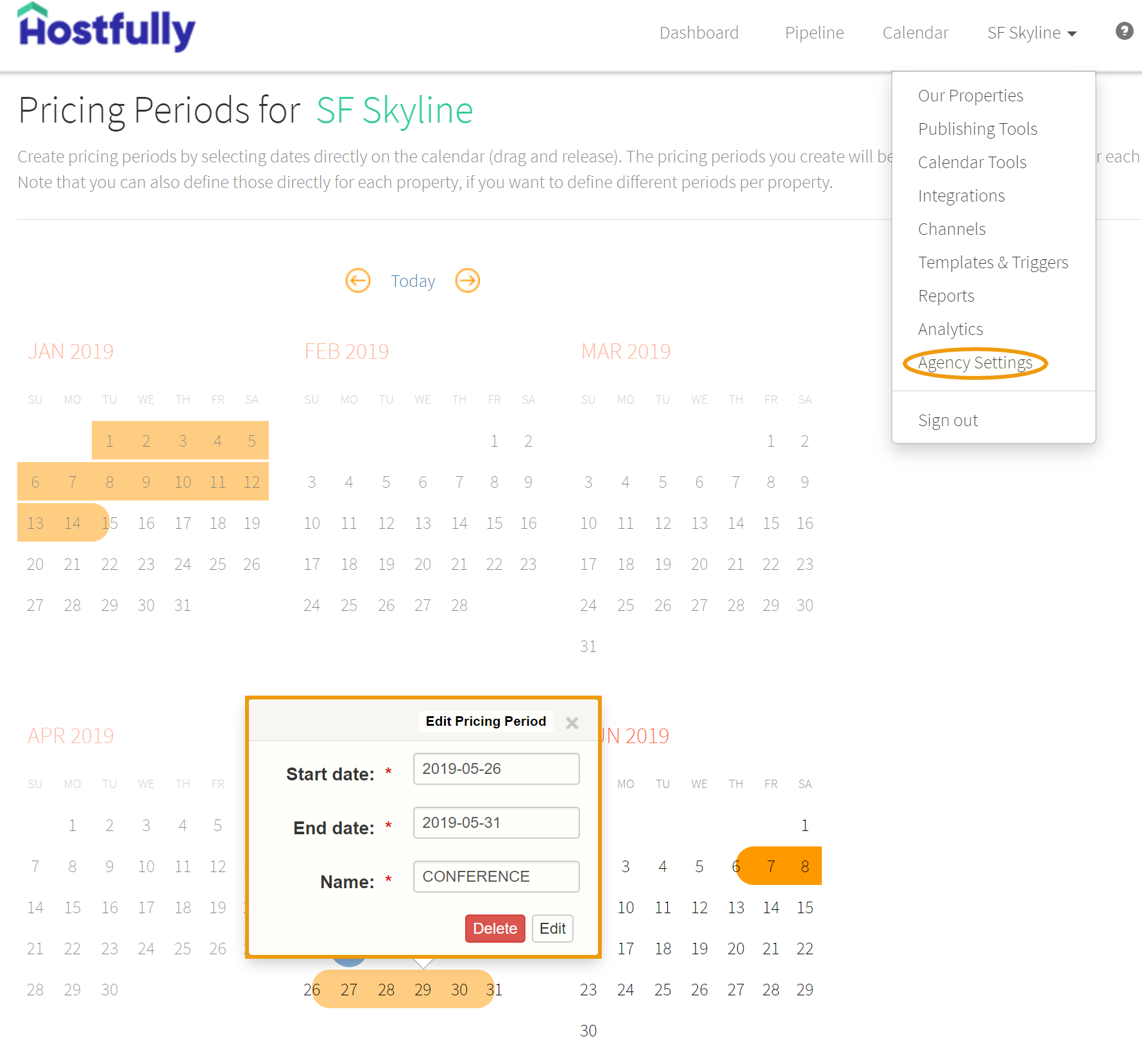OTAs like Airbnb and Vrbo have great built-in cancellation policies. But as a property owner and manager starts to scale their business, putting in place a direct bookings strategy (and cutting out the middlemen so to speak), may become an appealing option.
As with many other direct booking decisions, it’s important to have a thoughtful cancellation policy. Unlike Airbnb and other OTAs, with direct bookings, you have more control over your cancellations. In this article, we’ll discuss what considerations to keep in mind and offer suggestions on how to create a policy that works for you, your guests, and your business.
Why vacation rental managers need custom cancellation policies
You should set up a policy that strikes the right balance for you and your guests. Otherwise, you may see that hard-earned visitors to your site don’t convert into renter reservations. Here are some key reasons why it’s critical:
- Protects your cashflow: anytime you get a last-minute cancellation, you take a hit and will find you need to discount your ADR (average daily rate) to fill the occupancy
- Protects the rental property: renters that see a tight rental agreement, complete with cancellation policies, damage waivers, check-in instructions, clear cleaning fees, and other terms of use, are less likely to be rowdy, throw parties, and damage the property.
- Protects the homeowner’s interest: remember that if you’re a property manager, the homeowner is choosing to trust you with their asset to generate income. If a listing gets too many cancellations it impacts their return and ability to pay a mortgage.
- Protects your business: as a property manager, if a listing gets too many cancellations, it gives a reason for the homeowner to start shopping around to find a new vacation rental management company.
What to include in a vacation rental cancellation policy
No matter what cancellation policy you end up with, here are some of the more important details to include in your rental property’s listing at the time of booking.
- Arrival date and check-in instructions
- The maximum number of days prior to check-in when a full refund is possible
- Your cancellation fee structure after that date (including last-minute cancellations)
- How the cancellation fee will be charged
- Whether the travel insurance can be refunded (if you offer that)
- The portion of the cleaning fee that will be refunded
And be sure to include your cancellation policy in your rental agreement to guarantee your renter’s acknowledgment and accountability prior to booking.
The top 3 different types of cancellation policies
When setting up your policy, you’ll want to ask what you want to prioritize. Is it more important to offer guests flexibility or to ensure any booking guarantees some form of payment, even with a cancellation? Here are the main three different types of cancellation policies:
Flexible cancellation policy
Just as the name implies, a flexible cancellation policy offers more leeway for last-minute cancellations. This will appeal to renters who may have unpredictable schedules or tend to be risk-averse. A flexible policy may attract more bookings upfront. However, be sure to anticipate some cancellations and possibly some no-shows.
A flexible policy may guarantee a full refund as close as one week before your guests’ arrival date, or a partial refund of the total amount up until as little as 48 hours before check-in. You can always set up a flexible cancellation policy and monitor your trip cancellations over a period of time to ensure your business needs are being met and then pivot if needed.
Moderate cancellation policy
A moderate cancellation policy balances the concerns of potential renters and the business needs of the rental property manager and/or owner. For example, you might offer a full refund for cancellations made within 60 days of check-in, a partial refund for cancellations made within 30 days of check-in, and no refund within 7 days of check-in.
Strict cancellation policy
A strict cancellation policy will attract renters who like to plan ahead of time, know what they’re looking for, or for whom peace of mind trumps any cancellation fee. For example, it’s unlikely a strict cancellation policy would ever provide a full refund no matter how far in advance the cancellation occurs. Though you may not get as many immediate bookings, if you have a strict cancellation policy in place, the moment you secure a booking, you know some income is guaranteed.
You should also consider whether you want to offer trip insurance, reimbursable service fees, an option to rebook with a cancellation fee waiver, and your stance on extenuating circumstances. For example, the Covid-19 pandemic has also raised concerns about travel health and safety. No matter how flexible or strict your policy is, consider all potential situations that could warrant a trip cancellation so you’re prepared if and when they occur.
Should your cancellation policy account for peak season?
Depending on your short-term rental’s location, proximity to seasonal activities, and during peak season, you can consider building in a more strict cancellation policy. Since vacation rental demand can be seasonally driven, protecting you from losing out on primetime bookings is critical.
For example, if you’re managing an ocean-front property on Cape Cod, the summer weeks (June through August) are imperative to your property’s income and your rental property business. You might include a stricter cancellation policy with clear cancellation fees outlined in your rental agreement to ensure occupancy during those months. With a solid PMS, you can set up your policies ahead of time so they’re automatically in place.

Conclusion
Though Airbnb and Vrbo are excellent OTA options, there’s a lot to be said for establishing direct booking platforms, especially as you scale your vacation rental business. Direct bookings allow you the freedom to create any kind of cancellation policy that suits your business needs. Whether you opt for more strict cancellation policies or more flexible ones, when it comes to your direct bookings, just remember, you don’t have to go by the templates, rules, or commonly-used language you normally see on Airbnb or Vrbo. With a clear and thoughtful cancellation policy in place, your guests, homeowners, and vacation rental business will all benefit.
Frequently Asked Questions
How do I tell guests about my cancellation policy?
Your cancellation policy should be outlined in your property’s rental agreement. Guests should always sign your rental agreement before you accept the booking. When you use properly integrated technology, it will be automated in that process.
Is a cancellation policy mandatory when you have direct bookings?
While it’s not mandatory to have a cancellation policy when you have direct bookings, it’s highly recommended to do so. A good policy will protect you from bad ratings, angry guests, lost income, no-shows, and worse.
Are there legal implications to a strict cancellation policy?
Yes, there may be legal implications to a strict cancellation policy in the vacation rental business. The specific implications will vary depending on the jurisdiction, but in general, strict cancellation policies may be considered unfair or unconscionable if they are too harsh or one-sided. Also note that in some jurisdictions, there are laws that specifically regulate cancellation policies for vacation rentals, hotels, and other types of travel accommodations. If in doubt, contact a legal professional.
What are the implications of my cancellation policy for my occupancy rates?
It all depends on how you present it to potential guests going through the booking process. You can be upfront on your site that you have a strict cancellation policy, which might impact inquiries. On the flip side, you could have a link on your site that leads to your standard cancellation policy. Whatever you do, it’s important that you get the guests to sign the cancellation policy, which is usually done as they are booking the property.
What if a guest’s travel is canceled due to a force majeure event?
In most cases, you should issue a refund. If an event is labeled force majeure, it may carry legal implications which would be hard for you and your team to defend against. It’s usually best to avoid the hassle and go forward with the cancellation.










